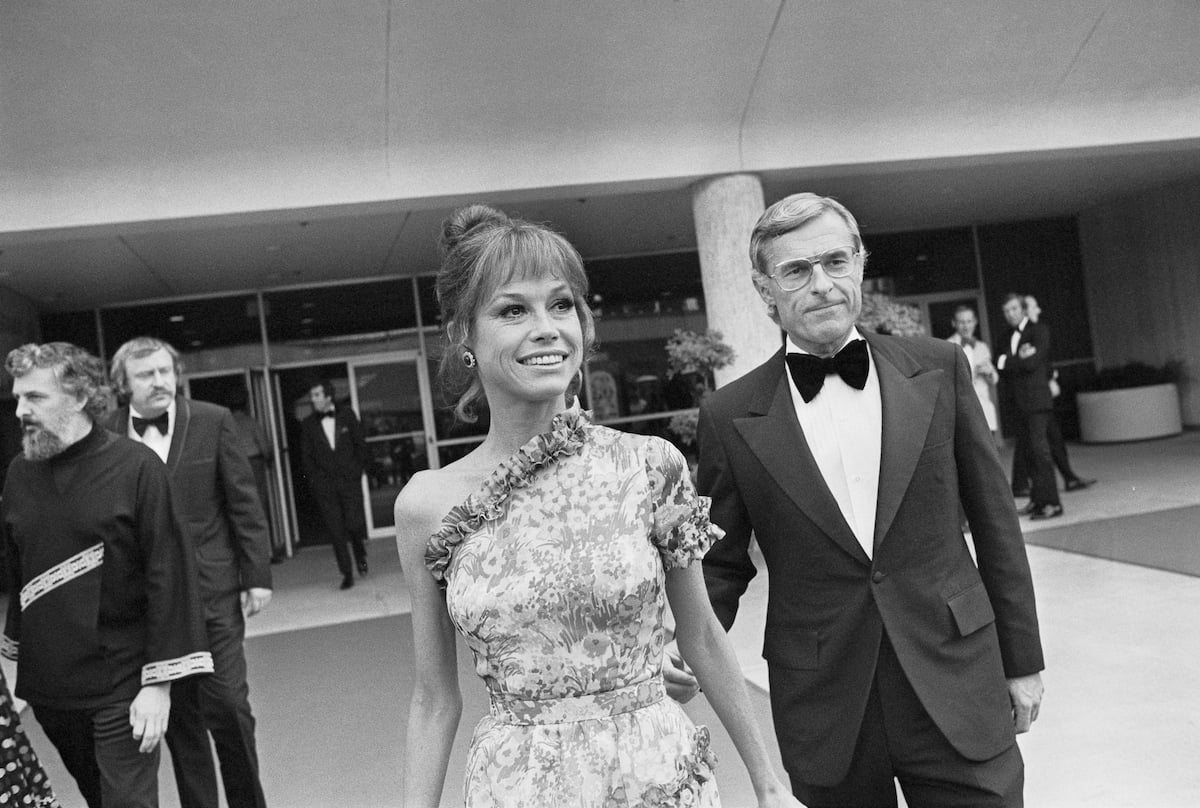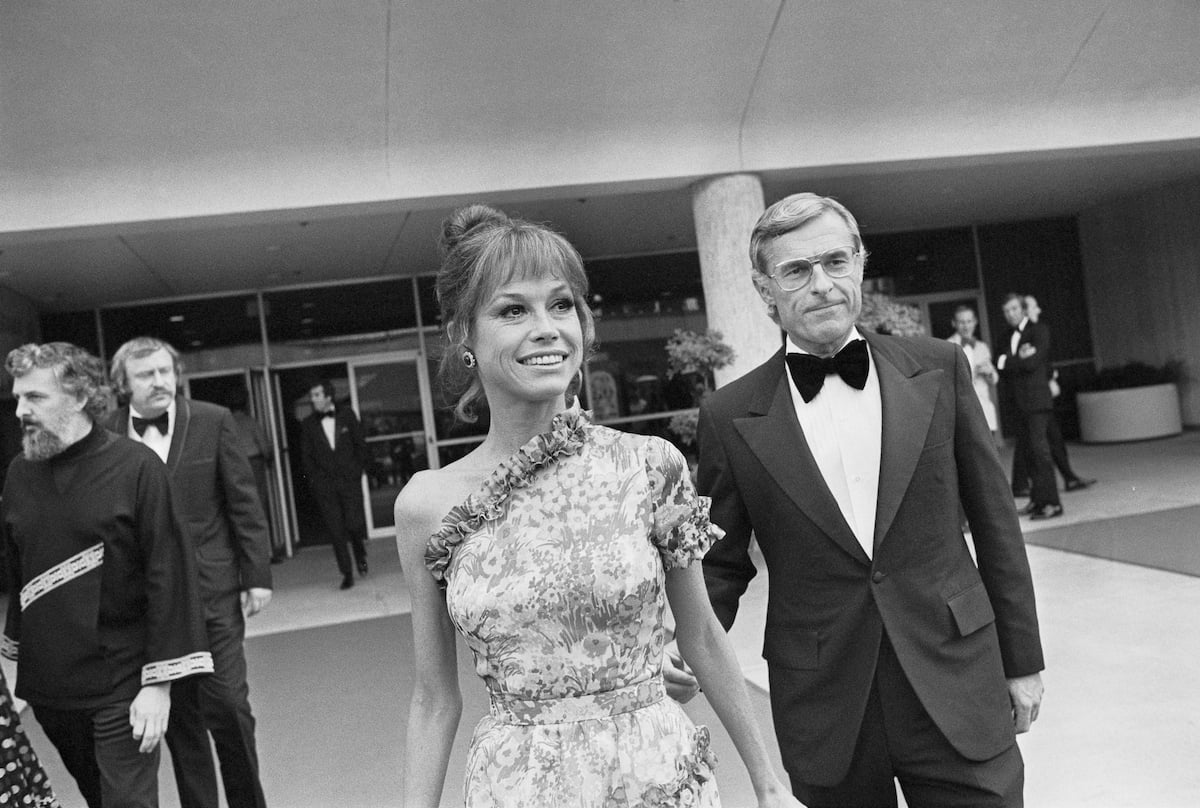
Mary Tyler Moore Had a Life-Saving Connection to a Former First Lady
Hosting a slew of celebrities like former first lady Betty Ford and everyone’s favorite sassy Dame, the late Betty White, The Mary Tyler Moore Show is one of the most beloved series in tv history. However, the sitcom’s star, Mary Tyler Moore, had more of a connection to the former first lady than just starring on screen together.
Following her role on the beloved ’70s CBS show, Moore revealed her deep connection to the first lady’s most revered legacy.

The best of ’70s sitcoms: The Mary Tyler Moore Show
Starring in one of the most powerful feminist roles in TV history, Moore played Mary Richards on The Mary Tyler Moore Show from 1970-77. In the seven-season series, Richards is a single, 30-year-old woman. After a broken engagement, she moves to Minneapolis to start anew.
The show focuses on elements of second-wave feminism, following Richards into a high-powered career and love life. Other subjects explored over the series’ seven seasons include workplace discrimination, equal pay for women, divorce, and addiction.
Considered one of the best ’70s sitcoms, The Mary Tyler Moore Show won 29 Primetime Emmys over its seven seasons. The series was created by James L. Brooks and Allan Burns and starred renowned actors Edward Asner, Gavin MacLeod, Valerie Harper, Ted Knight, Georgia Engel, Cloris Leachman, and White.
Among the series’ biggest guest stars was former first lady Betty Ford, who appeared as herself in The Mary Tyler Moore Show’s sixth season. Ford’s appearance made history as the first time a First Lady made a cameo on a TV sitcom. Other guest stars included Carole King, Walter Cronkite, Craig T. Nelson, Henry Winkler, John Ritter, Penny Marshall, and a young Helen Hunt.
Alcoholism strengthened Mary Tyler Moore‘s connection to former first lady Betty Ford
However, Moore’s connection to the former first lady did not end after Ford appeared on The Mary Tyler Moore Show in 1976. According to Fox News, eight years after Ford’s cameo, Moore’s alcoholism led her to check into the Betty Ford Clinic.
Founded in 1982, the Betty Ford Clinic (now the Hazelden Betty Ford Foundation) has become one of the most prestigious rehabilitation sites in the world. The foundation truly began with Ford’s own struggles with addiction and alcohol abuse.
In 1978, just four years after Ford became the first lady alongside her husband, President Gerald Ford, Ford announced publicly that she was addicted to prescription pain medication and was seeking treatment, as Biography reports.
A few weeks after starting treatment at Long Beach Naval Hospital, Ford admitted she struggled with alcoholism. Four years later, the Betty Ford Clinic was born and quickly became associated with celebrities and public figures,.
A phone call saved Mary Tyler Moore’s life
Though Moore was known for her bright smile and easy-to-love personality, the actor’s life was marked by tragedy. During Moore’s young years, her mother’s alcoholism impacted her greatly. Her younger sister died at just 21 years old from a combination of painkillers and alcohol.
Moore’s only child, Richie Meeker, died at 24 from an accidental, self-inflicted gunshot wound in 1980. He, too, struggled with addiction, according to the Huff Post.
In 1984, four years after her divorce from Grant Tinker, Moore revealed her alcoholism. To get help, she checked into her former co-star’s clinic in Rancho Mirage, California. But the actress did not stay long.
“Feeling she was too good for the lowly tasks of cleaning and following rules, she got a taxi and headed to a hotel nearby,” People reveals via excerpts from Moore’s 1996 memoir, After All. The following morning, Moore received a phone call from her former co-star, Ford. “That phone call saved my life,” Moore writes. “I returned on my knees, pleading for reentry.”
Throughout the rest of her life, Moore, who died in 2017, talked openly about her struggles with alcoholism. She credited her time at the clinic and Ford’s help with her continued recovery.


